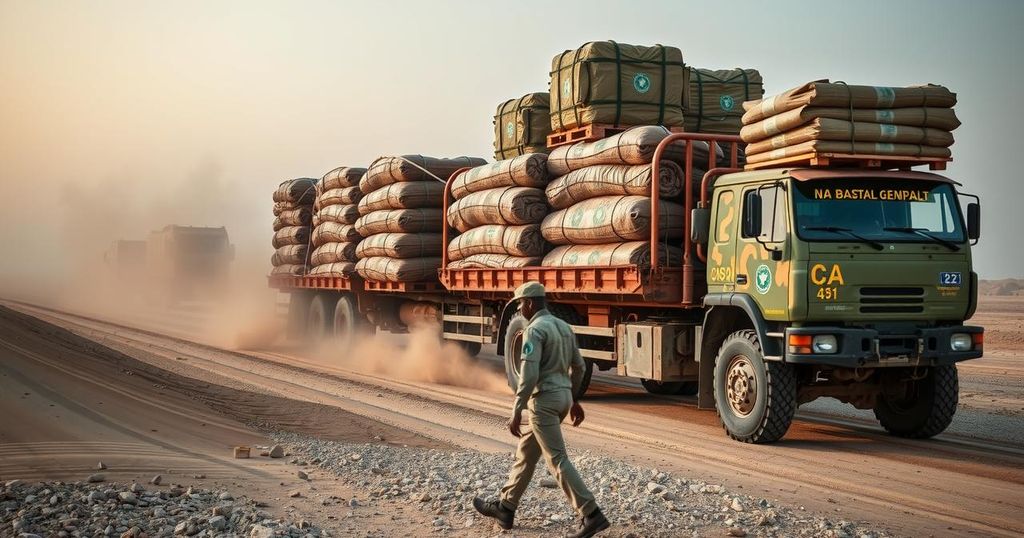The Somali government has accused Ethiopia of supplying weapons and troops to Jubaland, marking the fourth instance of such allegations within a year. Tensions have escalated as President Hassan Sheikh Mohamud contests the legitimacy of Jubaland’s governance. Ethiopian aircraft reportedly delivered military supplies to the region, heightening fears of conflict as Somalia vows to protect its sovereignty against perceived Ethiopian interventions.
The Somali government has once again accused Ethiopia of intervening in its domestic affairs, specifically alleging that Ethiopia has supplied arms and troops to Jubaland in preparation for conflict. This marks the fourth such accusation within a year, with President Hassan Sheikh Mohamud facing off against Jubaland leader Ahmed Islam Mohamed Madobe over issues surrounding Madobe’s recent election, which the federal government deems unconstitutional. Sources indicate that two Ethiopian aircraft have transported military supplies to Kismayo, Jubaland’s capital, heightening fears of further instability in the Horn of Africa.
Deputy Information Minister Abdirahman Al-Adala confirmed that one of these planes had reportedly ferried Jubaland’s Vice President Mohamud Sayid Aden to Addis Ababa, following Ethiopia’s troop deployments into Somalia’s Gedo region. Al-Adala emphasized that the Somali government intends to safeguard national sovereignty and security against perceived Ethiopian encroachments. Furthermore, he highlighted Ethiopia’s alleged training of Somali militia members within its territory, indicating escalating tensions over Ethiopia’s Red Sea access arrangement with Somaliland.
This recent development is compounded by previous claims from Somalia, including accusations of arms shipments from Ethiopia to regions like Baidoa and Puntland. Ethiopia’s government has denied similar accusations in the past but has yet to conclusively respond to the latest claims. Somalia asserts that Ethiopia is fixated on establishing a foothold to the Red Sea, simultaneously urging international partners to assist in preventing potential violent conflict.
The relationship between Ethiopia and Somalia has been fraught with tension, particularly regarding issues of territorial integrity and the influence of external forces in domestic governance. The Jubaland region has become a focal point of contention, especially with the leadership conflict between President Hassan Sheikh Mohamud and Jubaland’s Ahmed Islam Mohamed Madobe. The central government’s assertion that Madobe’s electoral process is illegitimate underscores broader disputes involving regional governance and associated military support dynamics. Ethiopia’s strategic interests in the Horn of Africa, particularly concerning access to the Red Sea through Somaliland, further complicate these relations, raising concerns about regional stability.
In summary, the Somali government’s repeated allegations against Ethiopia regarding military involvement in Jubaland illustrate a growing concern over external interference in national sovereignty. The ongoing conflict between federal and regional authorities exacerbates tensions within Somalia, with Ethiopia’s proposed ambitions in the region potentially leading to further instability. Continued international oversight may be crucial in mitigating risks of violence and fostering a collaborative approach to governance in the Horn of Africa.
Original Source: www.garoweonline.com






